|
Name & Affiliation |
Biographical notes |
- Yasmina Ahmed
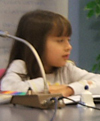
|
- I am seven years old. I liked the conference
because it was about science. I like science. But I also like
to draw. When I draw I can transform things. I can for instance
change guys into girls simply by changing a few lines. On the
first day I talked with Ron about molecules and about my microscope.
I like doing experiments. I often put things inside water to
find out what happens. I've also made a drawing of the inside
of a tomato. At the conference I was listening to what people
were saying and then I decided to make a drawing of the universe
wrapped around the world. I don't know if I want to be a scientist
or an artist. I like drawing, but as a scientist I would like
to make potions. I already have a lot of chemicals.
|
- John Avery
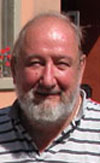
- Ørsted Institute
|
- John Avery graduated from MIT with a BSc
degree in physics and was later awarded his MSc at the University
of Chicago. After working at the Cavendish Laboratory, Cambridge
England, and spending summers in the laboratory of Professor
Albert Szent Györgyi at Woods Hole Massechusetts, he lectured
at the Tait Institute of Mathematical Physics, Edinburgh University.
He was awarded his PhD and DIC in chemistry at Imperial College
(London) in 1965, where he remained until 1973, lecturing in
theoretical chemistry. Between 1973 and 2003 he taught at the
H.C. Ørsted Institute, University of Copenhagen, where
he is now an emeritus. In 1969, he founded the Journal of Bioenergetics
and Biomembranes, and served as its Managing Editor until 1980.
- Other occupations: technical expert, World
Health Organization, Regional Office for Europe, 1988-1995; Contact
Person for Denmark, Pugwash Conferences on Science and World
Affairs, 1990-present (www.pugwash.org) (www.pugwash.dk); Chairman,
Danish Peace Academy (www.fredsakademiet.dk), 2003-present.
- Books (author): "Quantum Theory of Atoms,
Molecules and Photons" 1972, Spanish translation, 1975;
"Creation and Annihilation Operators", 1976; "Hyperspherical
Harmonics, Applications in Quantum Theory", 1989; "Science
and Society", 1990; "Progres, Poverty and Population",
1997; "Hyperspherical Harmonics and Generalized Sturmians",
2000; "Information Theory and Evolution", 2003; "Space-Age
Science and Stone-Age Politics", 2004; (editor or co-editor):
"Membrane Structure and Mechanisms of Biological Energy
Transduction", 1973; "Local Density Approximations",
1983; "Understanding Chemical Processes", 1987; "New
Methods in Quantum Theory", 1995; "Dimensional Scaling
in Chemical Physics", 1993.
|
- Elise Boltjes
-
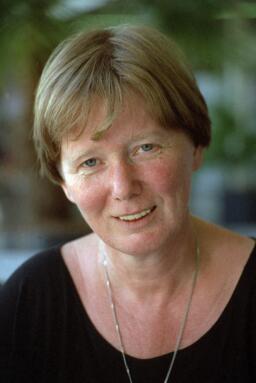
- Noordelijke Hogeschool Leeuwarden (Netherlands)
|
- Elise Boltjes's physics teacher at the secondary
school told her: "Physics isn't a study for girls."
After a long learning traject, she studied physics anyhow. Her
own experience from teaching at secondary school is: "If
you teach physics in such a way that girls like it, then boys
will like it too, but not vice versa." She investigated
the reason why. Most investigations find only small differences
in learning styles between girls and boys. However, the OECD
found a extremely large difference between Dutch girls and boys
in self-image with respect to their score. Girls have a lower
self-image of their own capabilities than boys have. The difference
in abstract intellectual capacity between girls and boys develops
in the socialisation process: girls give in more easily to their
uncertainty then boys do.
Elise Boltjes introduced example-based education as powerful
in providing the student a maximum feeling of certainty by helping
the student to accept feelings of uncertainty. Although girls
possibly admit more to their uncertainty than boys do, boys also
feel uncertain. Thus, both make progress while using example-based
teaching. Her credo is: "You experience the most certainty
by accepting your uncertainty."
Elise Boltjes teaches at the at the Technical Engineering Department
as well as the Department for Science Education of the Noordelijke
Hogeschool Leeuwarden (University for Professional Higher Education).
In addition, she is trainer/advisor example-based education.
|
- Ron Burnett
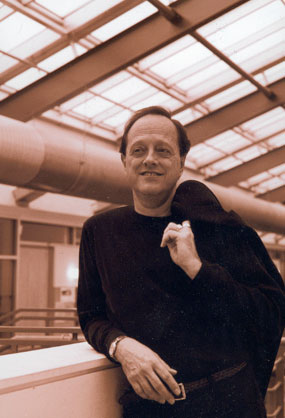
- Emily Carr Institute of Art + Design
|
- Ron Burnett is a Canadian communications
scholar and social/cultural critic. He has a particular interest
in popular culture, hypermedia, and postmodern media communities.
He is the author of Cultures of Vision: Images, Media and
the Imaginary, and How images think (published by
MIT Press), as well as founder and editor of Ciné-Tracts
Magazine (1976-1983). He is President of the Emily Carr Institute
of Art and Design in Vancouver, BC, Canada. Prior to that he
was Director and Associate Professor of Communications and Cultural
Studies in the Graduate Program in Communications at McGill University,
Montreal, Québec, Canada. Ron received
recently the Queen's Jubilee Medal for service to Canada and
Canadians, is an elected member of the Royal Canadian Academy
of Art, Adjunct Professor at York University, Chair of the Association
of Canadian Art and Design Schools of Canada, Member, Advisory
Committee of the European League of Institutes of Art, and author
of 150 published articles with a specialization in New Media
and Digital Culture.
|
- David Cavallo
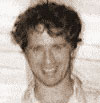
- MIT Media Lab
|
- David Cavallo is Principal Investigator of
the Future of Learning Group at the Media Lab of the Massachusetts
Institute of Technology. David's work is particularly motivated
by the concern that the latent learning potential of the world
population has been grossly underestimated as a result of prevailing
mindsets that limit the design of interventions to improve the
evolution of the global learning environment.
|
- Louk de la Rive Box
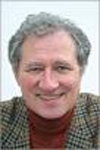
- Institute of Social Studies
|
|
- Virginia del Re
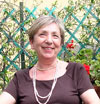
|
- I graduated in Classics and Oriental Studies
at the University of Rome. I was influenced by my father's interests
- he was a philosopher and a classicist, with a passion for languages,
which I inherited, together with curiosity and a tendency to
take up new -even apparently totally unrelated - things; a mixed
blessing, perhaps.
In 1960 I married (too young) and went to Tehran, with a University
bursary for Persian Studies. Iran was followed by two years in
West Africa. The close contact with different cultures and the
exposure to the realities of poverty and disease left a strong
mark: I became simply and forever unable to look at things from
a merely 'European' perspective. Years later I found that I had
known exactly what the word Eurocentrism meant long before it
became fashionable …
Back in Italy (Rome), with a family, my beloved oriental studies
had to be left, and I started teaching English in Secondary State
Schools. Linguistics and the way one learns -- and teaches --
new languages, new words and new ways of describing the world
fascinated me. So, I worked on teachers' training courses and
research projects in TFL, in Sheffield, and Viterbo. For the
Dept. of English in Pisa, my home now, I gave courses and seminars
on Historical Semantics, The Lexicon, etc.
I have accepted that the course of my life has largely been determined
by my being a woman. In spite of progress in the West in that
respect, prospects are still bleak for many millions of women.
Women's rights and gender issues have thus become my central
activity now; I am vice-president of the 'Associazione Casa della
Donna' di Pisa, and coordinator of the Women's Associations Network
of the Provincia di Pisa. I am currently working hard on "Women's
Rights and Multiculturalism" a long term project which will
focus successively on India, China and Eastern Europe.
I have managed, in spite of it all, to keep my interests in oriental
studies alive: Most recent in this line is my Persia Mystica:
poeti sufi dell'età classica (Edizioni ETS, Pisa,
2004), which is unexpectedly proving a small 'success'!
Other publications include 'In their Own Words', a multicultural
anthology; Teaching Development Issues, translations,
etc. For my reading group "La Luna" I have contributed
essays and seminars (On the Writing of Diaries, Meeting
the Other: Nadine Gordimer, Agota Kristof 'The Trilogy
of K', etc.).
|
- Marten de Vries
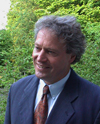
- Maastricht University
|
- Marten de Vries is currently
- Professor of Social Psychiatry at Maastricht
University, the Netherlands
- Chairman of the Center for Public Mental
Health (CPMH)
- Co-Chair of the International Business Roundtable
on Mental Health and Addiction Services
- Founder Mind Media Group
- Dr. deVries spent the past decade working
with the World Federation of Mental Health (WFMH) as a Board
Member, Secretary General and President. WFMH is the largest
international Non-Governmental-Agency (NGO) in Mental Health
promoting policy, services and prevention in more than 150 countries
around the world. He also has a substantial consulting experience
from across public and private sectors and is frequently consulted
by government and inter-government agencies such as the World
Health Organization (WHO), the International Labour Organization
(ILO) and United Nations (UN). He has extensive operational experience
from Europe, the Americas, East Africa and Asia. Moreover, he
has worked closely with media professionals and business leaders
around the world on distance education projects, film production
and the development of business round tables. Dr. deVries has
received a number of awards for his work including the Benjamin
Rush Award in the US and the Odegard Award in Oslo, Norway, in
1992, for his contribution to the understanding of the experience
and ecology of mental disorders.
- Dr. deVries is an internationally known scholar
and investigator. He was educated in medicine, psychiatry and
anthropology at the Harvard Medical School and the University
of Rochester. He has been particularly interested in the experience
of mental illness and the interaction of individual and group
behaviour within the social cultural contexts. He has been an
active participant in setting up mental health projects globally,
including the urban poor in Boston, the American Indians in New
York, the psycho-social care of refugees and traumatised populations
and in helping establish African and Asian Mental Health programmes
for the disadvantaged. He has served on the international boards
of 16 journals as well as committees that advise on public mental
health and he has published over 150 scientific articles, lectures,
and books.
- The impact of today's global mental health
need on business and economic performance is enormous. An appropriate
response to what the UN has called an "unheralded crisis
in public health" requires a concerted effort across the
public and private sector in which media and business have a
crucial role to play. Accordingly, Dr. Marten W. deVries left
his role as Secretary General of the World Federation for Mental
Health in 2001 to found the Mental Health Media Project in Center
for Public Mental Health.
|
- Lynn Dierking
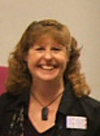
- Institute for Learning Innovation
|
- Dr. Lynn D. Dierking is internationally recognized
for her research on the behavior and learning of children, families
and adults in free-choice learning settings and has published
and spoken extensively in these areas. She possesses a Ph.D.
in Science Education from the University of Florida, Gainesville
and her research priorities include: the long-term impact of
free-choice learning experiences on individuals and families
and the development and evaluation of community-based programs.
Over the last 20 years Dr. Dierking has worked in a variety of
settings, including: the Smithsonian Office of Educational Research,
University of Maryland 's College of Education and as director
of a national curriculum project, Science in American Life, at
the Smithsonian's National Museum of American History. Her publications
include four books co-authored with John Falk, The Museum Experience
(Whalesback Books, 1992), Collaboration: Critical Criteria for
Success (Association of Science-Technology Centers, 1997), Learning
from Museums: Visitor Experiences and the Making of Meaning (AltaMira,
2000) and Lessons without Limit: How Free-Choice Learning is
Transforming Education (AltaMira, 2002); and one book co-authored
with Wendy Pollack, Questioning Assumptions: An Introduction
to Front-End Studies in Museums (Association of Science-Technology
Centers, 1998). She also co-edited a volume with John Falk, Public
Institutions for Personal Learning: Establishing a Research Agenda.
She serves on the Editorial Boards of Science Education and the
Journal of Museum Management and Curatorship.
|
- Laura Durnford
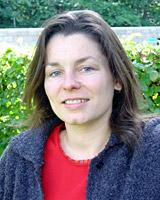
- Radio Netherlands
|
- Laura Durnford is the producer and presenter
of a weekly, half-hour science programme that's broadcast around
the world, in English, by Radio Netherlands, the Dutch international
broadcasting service. This programme, 'The Research File', covers
'science' in broad terms, including archaeology, health and medicine,
environment and nature as well as many other areas. In addition,
Laura produces documentaries on non-science subjects, with past
projects investigating the history of the past international
trade in ice, many aspects to do with boardgames, the Dutch legacy
in up-state New York, 40 years of 'the pill' in the Netherlands
and whether or not lab samples of the smallpox virus should be
destroyed. She also writes reports based on her radio work for
the RN website. Laura has been with RN since 1998. Before that
she worked as a freelance radio producer in London, primarily
with the BBC World Service science unit and with an independent
company reporting on developments in specialist areas of medicine
for a specialist audience. She has also 'lectured' in communication
skills for technical presentations at Imperial College, London,
where she herself completed a MSc in Science Communication in
1995. This followed a BSc in Applied Biology from the John Moores
University in Liverpool, UK. Laura has also worked as a caterer,
a children's face-painter and zoo-keeper, among other things.
|
- Peter Eisenberger
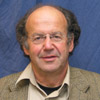
- Columbia University
|
- Peter Eisenberger received his undergraduate
degree from Princeton University and his Ph.D. degree from Harvard
University in Applied Physics. His physics research at Bell Laboratories,
Exxon Research and Engineering and Princeton University was in
using x-rays to probe the properties of materials, including
biological and self assembled thin films. He joined Columbia
in 1996 as the Founding Director of the Earth Institue and Director
of the Lamont Doherty Earth Observatory. He is currently a Professor
in Earth and Environmental Sciences where he is doing research
on a knowledge based approach to human co-evolution with the
planet. He is also involved in developing a new science center
that will utilize new approaches to learning.
|
- John Falk
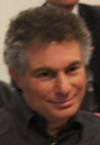
- Institute for Learning Innovation
|
- Dr. John Falk worked at the Smithsonian Institution
for fourteen years where he held a number of senior positions
including: Special Assistant to the Assistant Secretary for Research;
Director, Smithsonian Office of Educational Research; and Associate
Director for Education, Chesapeake Bay Center for Environmental
Studies. He earned a joint doctorate in Biology and Education
from the University of California, Berkeley . He is the author
of over ninety scholarly articles and chapters in the areas of
biology, psychology and education, co-author with Lynn Dierking
of The Museum Experience, Learning from Museums: Visitor experiences
and the making of meaning and Lessons without Limit: How free-choice
learning is transforming education, and editor of Free-Choice
Science Education: How we learn science outside of school. He
is also author/editor of numerous science educational materials
and books including Bubble Monster and other Science Fun, Bite
Sized Science and the Smithsonian Science Activity Books (Volumes
1-3). Research priorities include the study of learning in free-choice
learning settings (with particular expertise in museums), the
long-term impact of free-choice educational institutions on individuals
and communities, and investigating new business models for museums
and other cultural institutions.
|
- Zahara Girones
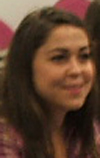
- Universidad Autónoma de Madrid
|
|
- Paul Grobstein
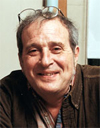
- Bryn Mawr College
|
- Paul Grobstein is a neurobiologist, educator,
and parent with a life-long interest in understanding why people
behave the way they do, and how they can continually expand their
capabilities. In recent years, he has devoted most of his time
to thinking and writing about the implications of current and
anticipated understandings of the brain, of biology, and of complex
systems for a variety of practical and philosophical issues,
including mental health, child-rearing, education, cultural change,
community development, and forms of human understanding. He is
also an active explorer of opportunities being made available
by the development of computing technology and of the internet
and the web. Current positions include:
- Eleanor A. Bliss Professor of Biology at
Bryn Mawr College,
- director of the College's Center for Science
in Society (http://serendip.brynmawr.edu/local/scisoc/), and
- co-founder of the Serendip website (http://serendip.brynmawr.edu/).
- For further information see http://serendip.brynmawr.edu/local/grobstein.html).
|
- Chide Groenouwe
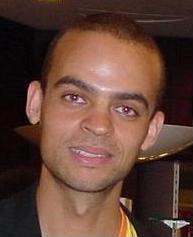
- Network Universalis and Free University
Amsterdam
|
- Chide Groenouwe (the Netherlands) is founder
of Network Universalis (http://www.network-universalis.org),
a nascent learning community that aims at exploring the process
and outcome of functioning as a defragmented learning organization.
In the preparation-phase of the organization, he came into contact
with the Learning Development Institute (LDI) through its founder,
Jan Visser. This led to his affiliation with LDI. "Network
Universalis" - as the name of the organization suggests
- is in a sense a collective homo universal, mimicking a homo
universalis with a group of people. As such, one can classify
Network Universalis as an actualization of the new types of learning
communities envisioned by Visser. Network Universalis strives
to enable the defragmentation of knowledge, the integration of
human roles, and the integration of different dimensions of human
creativity, not only outside its borders, but also within its
own borders. Thus it derives its activity from a broader, integrated,
more meaningful context, while fostering a more personal context,
too. Network Universalis is now preparing a project-proposal
- the Collective Scientific Mind Initiative - that could be part
of The Scientific Mind project.
- In chronological order, Chide studied mathematical
logic (University of Twente and Nijmegen), worked as computer-technology
teacher (Hogeschool van Utrecht), and did research together with
Ronny Siebes (Free University Amsterdam) in the field of knowledge
technology. He will soon begin his doctoral studies in the fascinating
area of electronically enhanced science at the Free University
of Amsterdam. In his spare time he practices piano (especially
latin and classic), martial arts and gymnastics, learns Spanish
and supports young refugees in their (computer) education.
- See also http://www.learndev.org/People/ChideGroenouwe/Index.html.
|
- Matthew Jukes

- Imperial College London School of Medicine
|
- Matthew Jukes's first degree was in physics.
After a PhD in Developmental Psychology at Oxford University,
he joined the Partnership for Child Development at Imperial College
London. His research there is conducted in low-income countries
and addresses the impact of ill-health (malaria, iron deficiency
anaemia, helminth infection) on cognitive development and schooling;
behavioral responses to school-based HIV/AIDS education programs;
psychosocial development of children made vulnerable by HIV/AIDS;
and factors influencing primary school enrolment and drop-out.
Current projects are in Tanzania, Kenya, Zimbabwe, the Gambia,
Zambia and India.
|
- Christopher Kolar
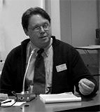
- Illinois Mathematics and Science Academy
|
|
- Peter Lavender
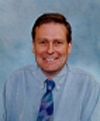
- National Institute of Adult Continuing
Education
|
- Dr Peter Lavender is the Director for Research
and Development at the National Institute of Adult Continuing
Education (NIACE) for England and Wales. Peter's doctorate was
in social policy, volunteering and adult learning. He has been
a school teacher, adult education organiser and college inspector.
He co-wrote the committee of enquiry report, Inclusive Learning
(HMSO, 1996), an investigation into provision for adults and
young people with disabilities, learning difficulties or mental
health problems. Peter is a board member of the Basic Skills
Agency and a member o the UK's UNESCO education committee. At
NIACE Peter's portfolio includes literacy, language and numeracy;
health improvement and learning; disability and mental health
and learning. See http://www.niace.org.uk.
|
- Gilles Lavigne
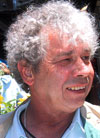
- Universidad Autónoma de Baja California
|
- Since 2003, Gilles Lavigne is a researcher
at the Instituto de Investigación y Desarrollo Educativo,
Universidad Autónoma de Baja California (México).
Before, he was a full professor for 22 years at the Télé-université,
Université du Québec (Canada), splitting his time
up into developing distance courses, managing the Research and
Graduate Studies Division and, for 12 years, acting in the field
of International Cooperation and Development. Even though his
training (Philosophy, Anthropology, and Urban Studies) steered
him towards Urban Studies in which field he has published a number
of books, chapters and articles, he gradually devoted himself
to Distance Education as prime interest. Living now in an emerging
country, but with a northerner's experience (and mind?), he has
to cope with the various gaps between North and South. Facing
problems new for him, such as the low number of PhD holders in
his adoptive country, he is working on the educational problem
consisting in training of graduate students, especially training
them to do research, in order to develop virtual educational
tools to facilitate such training.
|
- Leon Lederman

- Illinois Mathematics and Science Academy
|
- Leon M. Lederman is an experimental physicist
who received the 1988 Nobel Prize for his part in developing
the neutrino beam method and the demonstration of the doublet
structure of the leptons through the discovery of the muon neutrino.
Since retiring from his function as Director of the Fermi National
Accelerator Laboratory in Batavia, Illinois, he has dedicated
his efforts to helping others to discover the beauty of the world
through science. Thus he helped organize a Teachers' Academy
for Mathematics and Science, designed to retrain 20 000 primary
school teachers in the Chicago Public Schools in the art of teaching
science and mathematics. In addition, he has been involved with
science education for gifted children and with public understanding
of science. He helped to found the Illinois Mathematics and Science
Academy, a three year residential public school for gifted children
in the State of Illinois. He also founded ARISE, a program to
modernize the teaching of science in high schools.
|
- Dawood Mamoon
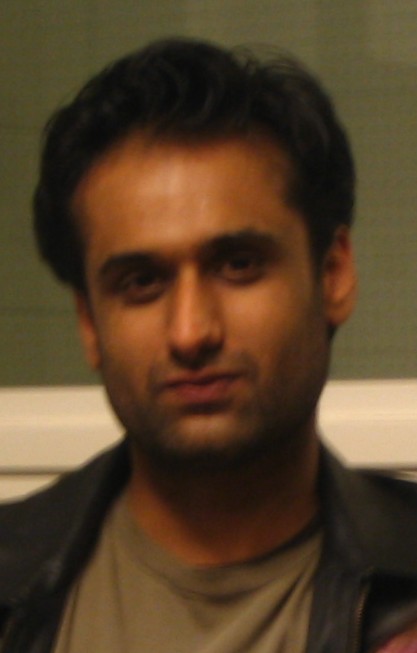
- Institute of Social Studies
|
- Dawood Mamoon is Royal Netherlands Fellow
at the Institute of Social Studies, The Hague, pursuing his Doctorate
in Economics for Sustainable Development. His topic is 'Trade,
Poverty and Inequality' whereby he is trying to find ways to
align growth strategies with pro poor outcomes. Previously he
has obtained his MA degree in Development Studies as well as
his M.Phil and Msc degrees in Economics.
- He has written extensively on the political
economy of South Asia in international megazines like Asia Times
and South Asia Tribune. Dawood Mamoon has also analysed the role
of education in economic development. His recent research has
shown that human capital is the key for the development in the
South as well as ensures welfare friendly outcomes of processes
of globalisation. Recently he has been part of an expert meeting
to develop future strategies for The Netherlands regarding International
Cooperation in Higher Education.
- He has also been associated directly with
the education sector in 2002 when he taught Economics to M.Sc
and M.Phil students at Islamabad University, Pakistan, as a permanent
faculty memeber. He is also a visiting fellow at the Sustainable
Development Institute Pakistan as well as given consultancy to
the Institute of Electoral Studies (IES), Pakistan.
|
- Federico Mayor
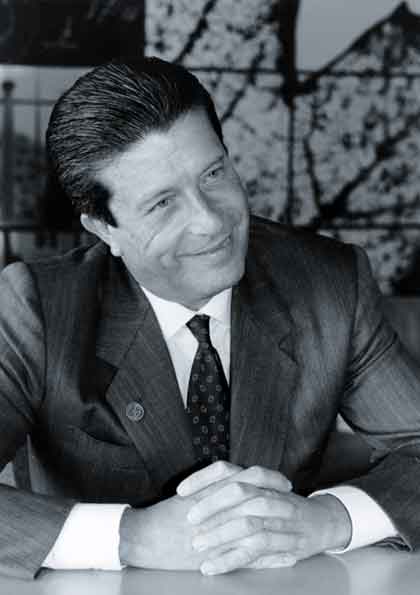
- Culture of Peace Foundation & Universidad
Autónoma de Madrid
|
- Federico Mayor Zaragosa is a biochemist of
renown, whose publications focus, among other areas, on the metabolism
of the brain and the biochemical processes and pathology of the
newly born. He founded and directed the Centro de Biología
Molecular Severo Ochoa at the Universidad Autónoma de
Madrid. Federico is also a poet, a thinker and one of the great
humanists of our time. He served as Director-General of UNESCO
from 1987 to 1999. Much of his attention during that period was
directed at leading the Organization back to its original roots,
namely its role in fomenting a culture of peace, promoting tolerance
and understanding among the peoples. As part of this objective
he took great care to advance human learning in its rich variety
of appearances among all members of planetary society.
Following an effective two mandates at the helm of UNESCO, he
subsequently founded and presides over the Fundación Cultura
de Paz, headquartered in Madrid, Spain.
|
- Roy McWeeny
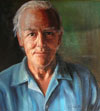
- University of Pisa
|
- Roy McWeeny grew up in a small industrial
town in the north of England, during the 1920's and 1930's. At
an early age he had to decide between Fine Art and Physics, choosing
Physics but keeping a lifelong interest in painting and sculpture.
He has degrees from Leeds and Oxford, where he developed his
interests in mathematical physics and quantum theory. After 35
years of university teaching (Mathematics, Physics, Chemistry),
he moved to a Chair in Italy, where he is now Professore Emerito
di Chimica Teorica, University of Pisa. He has held visiting
appointments in many European Universities (in Denmark, France,
Germany, Italy, Netherlands, Poland, Sweden); also in India,
Israel, Japan and the USA.
The first of his many books was "Symmetry - An Introduction
to Group Theory" (1963), which became a `classic' and was
reprinted (2001) by Dover Publications. He has a passionate interest
in teaching and a strongly `pictorial' imagination - believing
that difficult and abstruse concepts can usually be conveyed
through visual images. At present he is editing (and writing
for) "WorkBooks in Science", a series of modules aimed
at people with limited formal education: the books will be available
gratis on the Internet. His other publications include about
150 research papers, mainly in the area of molecular physics
and quantum chemistry. He was elected (1973) to the International
Academy of Quantum Molecular Science; and (1987) to the European
Academy of Arts, Sciences and the Humanities. One regret - that
there was never more time for the Arts, for working with clay
or wood or stone, which once gave so much pleasure.
|
- Paula Monjane
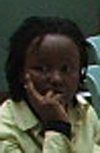
- Fundação para o Desenvolvimento
da Comunidade
|
- Paula Monjane's first degree was in physics.
Her Master degree was in Development Studies at Institute of
Social Studies, in The Hague, The Netherlands. For more than
10 years she has been working in Monitoring, Evaluation and social
research for Population Services International (PSI) and The
Foundation for Community Development (FDC) in Mozambique. Currently
she is directing the establishment of a Knowledge Management
Centre at FDC, as part of the organization's effort to apply
the existing best practices from inside the organization as well
as from a network of implementing partners and other partners
in a continuous learning process. Her major areas of interest
and fields of specialization are: Social and political aspects
of HIV/AIDS, quantitative and qualitative research methodologies
and Participatory Rural Development.
|
- Sailaja Nandigama
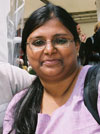
- Institute of Social Studies
|
- Sailaja Nandigama is an NFP fellow ( Netherlands
fellowship Programme 2003-07) at the Institute of Social Studies
(ISS), persuing her 3rd year Ph.D on"Community Involvement
in Conservation: Grassroots level negotiations between actor-networks
in CFM, AP-India". Her study is about the political ecology
of the indigenous communities’ involvement in conservation
of the forest resources through Community Forest Management (CFM)
in a village, in Andhra Pradesh, India. The objective of her
study is to capture the grassroots level negotiations and interfaces
between the principal actors in CFM (state of Andhra Pradesh,
indigenous communities, and other non-governmental actors), in
order to reflect on the relative transformations in their power
positions. Village level forest protection committees (Vana Samrakshana
Samithi-VSS) consisting of the indigenous communities and the
local governmental and non-governmental institutions as the principal
actors in the conservation process, form the main case for evaluation.
Multiple units of study are used: at village, at VSS, at inter-household
level of the community involved in conservation of forest through
CFM. In short, her study tries to capture how CFM intervention
is manipulated by the local level negotiations and actor- networks
for their short term and long term advantages, and what are new
developments that occur in the power balance at the grasssroots
level due to the same.
-
- Sailaja did her MA & M.Phil in Political
Science from University of Hyderabad (HCU), a central university
of India, a leading research centre for policy based studies.
She has been into interdisciplinery social science research for
the past 8 years of her career as a researcher and academician.
Her major areas of specialisation and research interests include:
Public Policy Analysis; Political Economy; Human Rights (special
focus on Child rights); Participatory Rural Development; Natural
Resource Management; Environmental Politics and Gender; and Qualitative
Research Methodology.
Apart from presenting papers on child rights at National Human
Rights Conventions in India, she has worked as a senior researcher
in a New Delhi based leading consultancy/ NGO, Centre for Media
Studies(CMS). She also worked as a lecturer in Political Science,
teaching graduate students in the above mentioned desciplines.
Owing to her extensive field experience in a developing country
like India, in various social science desciplines, she proposes
that the local knowledges and the local practices are the major
entities for the Scientific Mind to incorporate, in order to
broaden the spectrum of scientific knowledge in a globalised
world.
|
- Corina Negrea
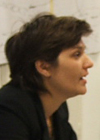
- Radio Romania
|
|
- Kathy Nielsen
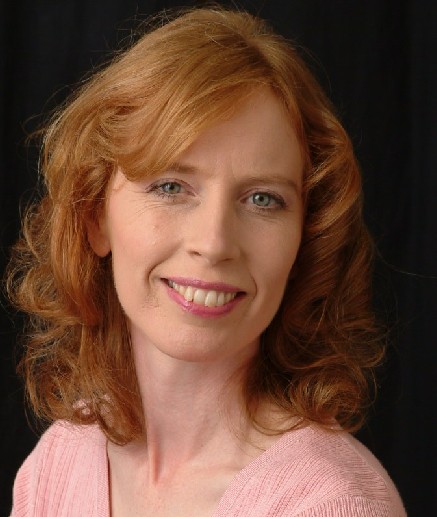
|
- Through participant-observation and historical
analysis of physicists’ and martial artists’ published
commentaries on their own disciplines, Kathy Nielsen has examined
embodied practices of approaching technique as a means for discovery.
Her dissertation considered the visible and invisible ways that
physicists and martial artists employ technique in the development,
refinement, and transmission of knowledge. It also explored the
underpinnings of their rhetorical strategies for justifying weapons
research. Her current projects include participating in the collaborative
development of digital archives and cohort oral histories for
the KEK high energy physics laboratory and other Sokendai national
research institutes in Japan.
|
- Evgeny Patarakin
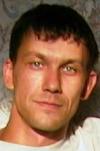
- Program Systems Institute Russian Academy
of Science
|
- Evgeny Patarakin lives in Nizhny Novgorod,
Russia. Starting work as biologist and microbiologist he continued
his professional growth in the field of computer science and
computer education and became the head of a Laboratory in the
Program Systems Institute of the Russian Academy of Science.
His teaching and research are primarily in the area of network
communities and social interaction. He is author of "Network
Community and Learning" (in Russian). More information about
him can be found at http://pat.iatp.ru/ and
http://www.learndev.org/People/EvgenyPatarakin/Index.html.
|
- Vimla Patel
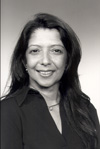
- Columbia University
|
- Vimla L. Patel is Professor of biomedical
informatics and of psychiatry at Columbia University and adjunct
professor of psychology and education at Columbia Teachers' College
in New York City. She is the director of the Laboratory of Decision
Making and Cognition in biomedical informatics. An elected fellow
of the Royal Society of Canada and also of the American College
of Medical Informatics, she was recipient of the annual Swedish
"Woman of Science" award in 1999. She received an Honorary
Doctor of Science degree from the University of Victoria, BC,
Canada in 1998 and became the fellow of the New York Academy
of Medicine in 2004. Her research interests include cognitive
models of reasoning and decision making by lay people and by
experts, qualitative assessment of medical errors for patient
safety, cognitive evaluation of learning, and human-computer
interaction in health care domains. She adapted methods and theories
from cognitive science to address long-standing problems in competent
performance in the workplace and learning, and to research that
provides a scientific foundation for medical and health education,
particularly in medical decision-making. She has worked as a
consultant to the World Bank, WHO, UNICEF, USAID as well as to
the foundations such as the James S. MacDonnell and Rockefeller
Foundations on studies in the developing countries. She has over
200 journal publications and is on the editorial board of Informatics
and Health Science journals. http://www.dbmi.columbia.edu/patel/
|
- Tjeerd Plomp
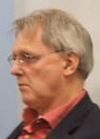
- Twente University
|
|
- Bill Rogoza

- Northern Ontario Native Tourism Association
|
- Bill Rogoza is the General Manager of the
Northern Ontario Native Tourism Association (NONTA) located in
Thunder Bay, Ontario, Canada. He works under the direction of
a Native Board of Directors from across Northern Ontario.
- Bill has been active in the industry for
the last 20 years and has worked in the Northwest Territories
(now called NUNAVUT) and Northern Ontario
developing package tours, training, marketing, and community
awareness programs.
- He coordinates two separate marketing programs
one that deals exclusively with US anglers from an office in
Chicago and another that deals with Aboriginal culture or an
eco-tourism program out of Thunder Bay. He has been on travel
trade missions to France, Germany and Belgium.
- Bill enjoys travelling, computer gaming,
and scuba diving.
|
- Christina Rogoza

- Nova Southeastern University
|
- Christina Rogoza is a doctoral student in
Instructional Technology and Distance Education at Nova Southeastern
University in Miami, Florida. She completed her Masters in Continuing
Education specializing in Workplace Learning from the University
of Calgary, Alberta, Canada.
- She currently works as an Instructional Design
Specialist with a background in curriculum writing. She has served
as a sessional lecturer in the School of Business at Lakehead
University, Thunder Bay, Ontario. In addition, she has ten years
in developing training for the corporate and not-for-profit sectors.
- She is a certified Yoga instructor and enjoys
traveling
|
- Nicholas Rogoza

- Queen's University
|
|
- Eric Ross
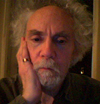
- Institute of Social Studies
|
- Eric Ross is a Senior Lecturer in the Population,
Poverty & Social Development specialization of the MA in
Development Studies at the Institute of Social Studies (The Hague)
He received his BA in anthropology in 1968 from the University
of Pennsylvania and his MPhil and PhD in anthropology in 1976
from Columbia University. His doctoral research was conducted
among the previously unstudied Peruvian Achuarä, a sub-group
of the so-called Jívaro Indians of the Upper Amazon. His
research focused on the ecology of tropical forest subsistence
and warfare and resulted in the seminal paper in Current Anthropology
(1978), "Food Taboos, Diet and Hunting Strategy: The Adaptation
to Animals in Amazon Cultural Ecology." Having specialized
in medical anthropology, he had a post-doctoral fellowship in
epidemiology at the School of Public Health at Columbia. Still
interested in health issues and a former member of the steering
committee of the Public Health Alliance in the UK, much of his
subsequent work has nevertheless concentrated on the political,
economic and ecological conditions that shape dietary patterns,
but with increasing concern with complex socio-economic systems,
the dietary consequences of colonialism and the nature of food
systems within the framework of contemporary globalisation. As
such, he has written about food production and agrarian change
in Colombia, Mexico, South and Southeast Asia and Kenya. One
result of his long-term interest in food in comparative and historical
perspective was the landmark work, Food and Evolution: Toward
a Theory of Human Food Habits (1987), co-edited with the late
Marvin Harris. His work in the field of anthropological demography
produced the equally notable book, Death, Sex and Fertility:
Population Regulation in Preindustrial and Developing Societies
(1987), co-authored with Harris. Since then, he has published
articles in a wide range of journals, including Current Anthropology,
BioScience and the Review of Radical Political Economics, that
have collectively represented an unprecedented and sustained
critique of Malthusian interpretations of poverty and underdevelopment,
culminating in the influential book, The Malthus Factor: Poverty,
Politics and Population in Capitalist Development (1998). Eric
Ross remains a leading, if critical proponent of the anthropological
school known as cultural materialism and his edited volume, Beyond
the Myths of Culture (1980), remains a watershed work in that
theoretical tradition.
|
- Gordon Rowland
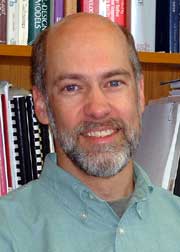
- Ithaca College
|
- Gordon Rowland is Professor and Chair of
the Department of Organizational Communication, Learing, and
Design (OCLD) at Ithaca College. OCLD is a unique interdisciplinary
program, easiest to understand by reversing the words in the
name: it is about designing the systems and strategies that people
use to learn and communicate in organizations. He will switch
hats in August to become chair of the graduate program in communications.
His teaching and research are primarily in the areas social systems
design, design education, and workplace learning and performance.
He is author of A tripartite seed: The future creating capacity
of designing, learning, and systems, and co-author of Creating
the future: If we don't do it, who will? (http://www.ithaca.edu/rowland/ctf)
|
- Ronny Siebes
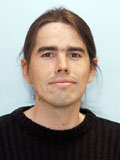
- Free University Amsterdam
|
- Ronny Siebes is a Ph.D. student in Artificial
Intelligence at the Free
University of Amsterdam where he works in the Knowledge Representation
and Reasoning Group. He has a particular interest in probabilistic
reasoning (automated reasoning that is able to deal with contradictions
and opinions) and automated expertise clustering (clustering
people
and/or systems with similar interests and expertise, without
centralized
control). Especially the latter is in his viewpoint an important
building
block for the Scientific Mind because it needs a mechanism that
prevents
censoring information. Ronny's work is currently specifically
motivated
by his concern that people are still ignorant on many important
topics
like Animal Rights. Information systems should be an efficient
and
effective extended memory of the brain, so that at least no-one
can say
"Ich habe es nicht gewusst."
|
- Walter Staveloz
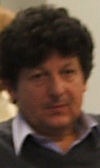
- ECSITE
|
|
- Diana Stirling
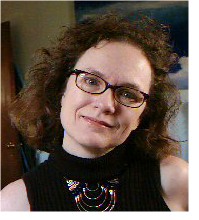
|
- Diana lives in the Sonoran Desert, in Tucson,
Arizona, USA. Her life is infused with a sense of home - the
intensity of sky, dry wind, birdsong, heat and space. Diana has
a BFA in dance, creative writing and studio art, and an MA in
education. She has taught a variety of subjects, including American
Sign Language, English, art and algebra, to students of all ages
and from many different countries. Her particular interests include
complexity theory and its potential application to the study
of learning in the individual, ideas about how to create dynamic,
individualized, computer mediated learning experiences, and ways
to support self-directed learning through free access to information.
She is also a painter.
|
- Jaap Swart
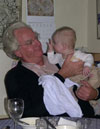
- JOTA Foundation
|
- Jaap grew up in the Netherlands Antilles.
Born 26 February 1942 on Curaçao he moved to The Netherlands
in 1957 to finish his Dutch secondary education, which was capped
with a year in Campbell/California where he attended high school
as an AFS exchange student. Back in The Netherlands he studied
Cultural Anthropology and Social Geography at the University
of Amsterdam. In 1968 he returned to Curaçao and became
geography teacher at Peter Stuyvesant College (PSC) one of the
island's secondary schools. During his 8 years in Curaçao
he was active in various functions of the educational system,
a.o. : member of resp. the Board of Directors of PSC, the Board
of Governors of the Pedagogical Academy, the Board of various
Teacher Unions. The Netherlands Antilles had experienced fierce
social change after the SHELL began to reduce its vast social
involvement which later led to a complete break. On 29 May 1969
a strike related to SHELL's withdrawal policy caused a major
upheaval leading to profound social, cultural, political and
economical change. For Jaap as a Curaçao born cultural
anthropologist this process of change provided a fascinating
experience. In 1976 he moved to The Netherlands and became General
Manager of Radio Nederland Training Centre (RNTC), the institute
for international education representing the Netherlands in the
field of media facilitated communication for education and development.
The development of RNTC implied scores of projects in Asia, Africa,
Latin America, The Caribbean and Europe, providing Jaap intense
involvement with co-operation, participation and observation
in the change processes resulting from international cooperation.
Turning sixty in 2002 he chose retirement after leading RNTC
for 25 years, because he wanted to devote time to those aspects
of media facilitated communication that interest him most. He
is now chairman of JOTA, a foundation aiming to give children
and adolescents real access to the communicative potential of
the media and the performing arts facilitating their active and
responsible participation in the relevant processes of their
societies and cultures. In addition he is involved with the initiative
of Prof.dr.Marten de Vries, a social psychiatrist of the University
of Maastricht, who seeks to muster the great potential of the
media to meet the surge of mental health problems confronting
the world community. His special relationship with the Caribbean
has led Jaap to be involved with activities in Surinam, The Netherlands
Antilles and Haiti, all involving his concern for the young,
children and adolescents, to have their rightful chance to live
a meaningful life and to foster their positive talents.
|
- Ralf Syring
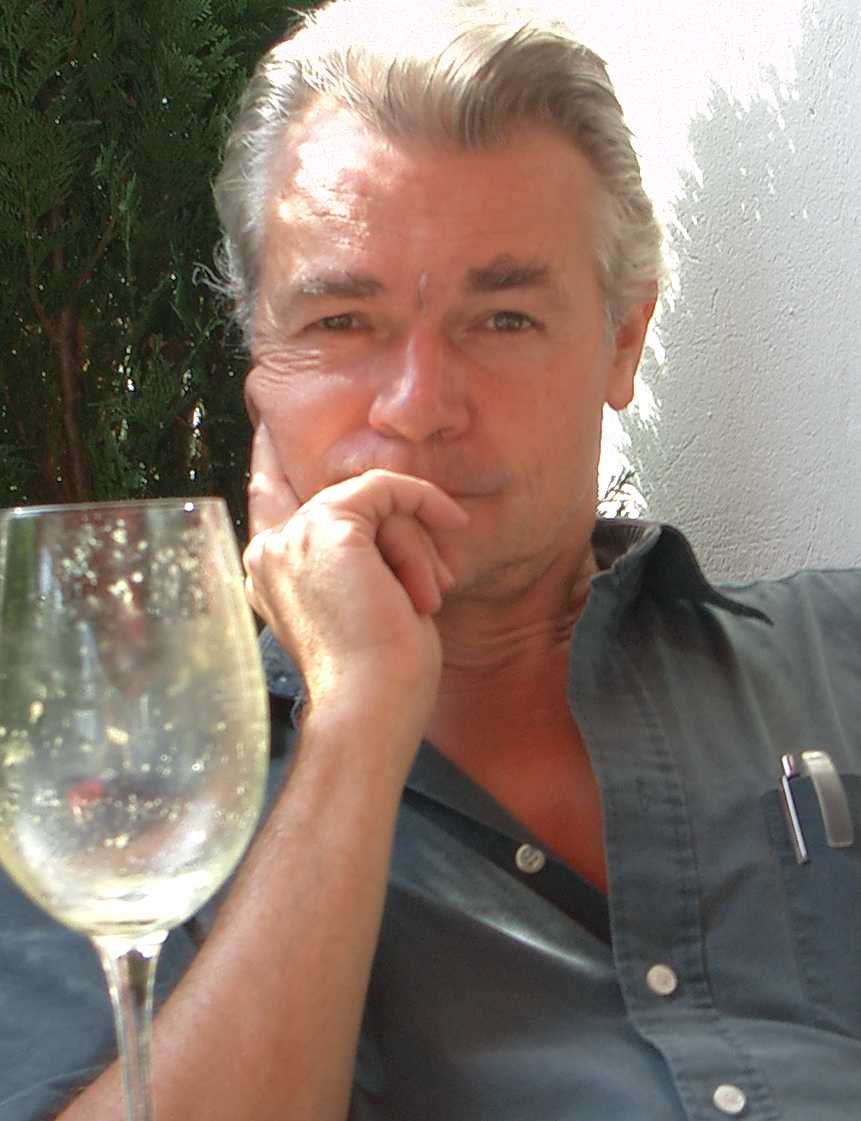
- Terre des Hommes, Mozambique
|
- Ralf Syring, Regional Coordinator Southern
Africa for Terre des Hommes, Maputo (Mozambique) After studies
of theology and social sciences (in German and Dutch universities)
and working as a teacher at vocational schools, study of medicine
and later specialization as pediatrician. Clinical experience
mainly in neonatology, first contact with HIV-positive patients
in a hospital in Hamburg. Medical work during the war in El Salvador
in the context of the liberation movement; at the same time contributions
to building a community based primary health care system and
training of rural population in basic medical care and prevention.
Since 1995 with a short interruption in Southern Africa, most
of that time in Angola as the representative of the Frankfurt
based NGO "Medico International", one of the two founders
of the International Campaign to Ban Landmines. Experience in
Angola concentrated on work with survivors of mine accidents
in a community context and on the demobilization of child soldiers.
During that time training in psycho-traumatology. Work at this
moment is related to the whole Southern African region and concentrates
on traumatized children and children affected by the HIV-pandemic.
The confrontation with failing prevention interventions against
HIV caused a strong interest in research about how to address
people with a message about HIV, which takes their cultural and
social interpretation of reality serious.
|
- Mohsen Tawfik
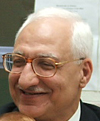
- UNESCO, India
|
- Mohsen Tawfik is a trans-disciplinarian by
nature. His interest and work included engineering, natural and
social science, literature and music. He's also a transcontinental
resident with 8.5 years in Moscow, 7 years in Paris, 4 years
in New Delhi and the rest in Cairo and other cities. He visited
and interacted with people in more than 70 countries all over
the world. He is a university professor (what he likes most)
but worked as a diplomat, international civil servant and knowledge
and intellectual activist. As an Egyptian he considers himself
a son of the Ancient Egyptian, Islamic and Contemporary Civilizations.
He got his B.Sc (Hons) and M.Sc degrees in Cairo and Ph.D in
Moscow (under the world known V A Venikov). After his graduation
at Ain Shams University in Cairo in 1966 he joined the Faculty,
where he got his tenure as a Professor in 1985. During the period
from 1986 to 1994 he established and served as Director-Founder
of a unique multidisciplinary post-graduate institute in his
university, two research centers in Cairo for Education and Higher
Education Reform and the "Think Tank of the G77" in
UNESCO.
He has served twice as a diplomat: from 1981 to 1986 as Cultural
Counselor at the Embassy of Egypt and Director of the Egyptian
Scientific Mission and Cultural Bureau in Moscow; and from 1994
to 1997 as Ambassador Extraordinary and Plenipotentiary, Permanent
Delegate of Egypt to UNESCO. He has represented his country at
many Global events and UN conferences.
Mohsen Tawfik has chaired many international programs; e.g. the
Intergovernmental Council of the General Information Program1996-1997;
Working Groups on the UNESCO Medium-Term Strategy and Program
and Budget1994-1997; International Committee of Experts, the
IBE International Conference on Education, Geneva 1996; Commission
I at the 28th session of the General Conference of UNESCO1995;
the Executive Committee on Safeguarding of Moenjodaro; UNESCO
"International Consultation Meeting on Environmental Ethics"
(1991).
He is the author of several books and tens of studies and articles
in the fields of sustainable development and new technologies,
environment, and e-learning. He is also the author of 30 scientific
papers in the field of electrical and control engineering, his
specialization, published internationally.
Mohsen Tawfik joined UNESCO in 1998 as a Senior Director at UNESCO
HQ in Paris. He took charge as UNESCO Representative and Director
of the Asia Pacific Regional Bureau for Communication and Information
in New Delhi in July 2001.
|
- Bruno Valfrey
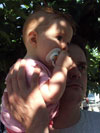
- Learning Development Institute
|
- My scientific career began with an experimental
phase. At 8, I caught a fantastic flu by staying out in the cold
until 3:00 AM to watch the moon with a pair of binoculars. At
10, I set up a chemistry lab in my closet (discovered after 3
months). At 12, I burnt the ceiling by inflaming a pot full of
phosphorus patiently obtained from chopping the tops of a few
hundreds matches. Tired of this experimental phase (and of my
parents' skepticism about the interest of such an approach -
not to say their strong disapproval of some episodes), I decided
to limit myself to theory and - the French educational system
being French - I became an engineer. Between 18 and 20 I almost
became a victim of the incapacity of my teachers to consider
science as a source of fun and learning as a source of satisfaction.
My salvation came from a physics teacher who was fond of Feynman
and probably had most of Feyman's teaching skills. At the engineering
school I very much enjoyed the elegance of quantum physics and
the beauty of Navier-Stokes' equations (it was an aeronautical
engineering school). My professional life is now focused on access
to basic public services in developing countries, but I continue
to be fascinated by science as a human production and by the
challenge of popularising it. As a simple citizen, I am also
very much concerned by the misuse of science in the field of
politics, as well as by the fact that a whole generation seems
to stray from science, depriving itself of the most fantastic
tool for understanding the world around us - and also depriving
itself of the most beautiful way of dreaming.
|
- Tania Vergnani
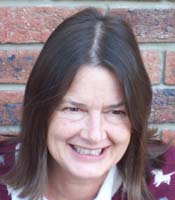
- University of the Western Cape, South
Africa
|
- Dr. Tania Vergnani is originally from Cape
Town. She is a registered clinical psychologist with a Masters
Degree from the University of the Western Cape, as well as a
second Masters Degree in Sociology from Freiburg University in
Germany. Her PhD, granted by UCT in the Department of Psychiatry
and Mental Health, focused on factors affecting adolescent condom
use. She has been at UWC since 1991 as a senior lecturer in the
faculty of education.
- Dr. Vergnani's academic passions revolve
around teaching life skills and HIV/AIDS education, counseling,
care and support, as well as training other educators. She has
authored a number of life skills textbooks as well as teacher
training manuals for sexuality education. Dr. Vergnani has acted
as director of the HIV/AIDS Programme since 2001. She seeks to
help guide the programme and the University towards creating
a model response to the epidemic that incorporates teaching,
research, prevention, care, support and treatment, management,
advocacy and community outreach.
|
- Jan Visser
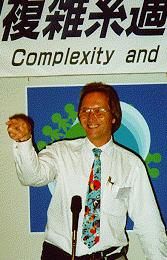
- Learning Development Institute
|
- Jan Visser is a theoretical physicist, turned
educator, turned documentary filmmaker, turned instructional
designer and researcher of human learning. He has a profound
interest in the arts and is a practicing musician. As a physicist
he dedicated himself to exploring the quantum mechanical aspects
of molecular biological structures; as a documentary filmmaker
his interest was drawn to the role of imagination in children's
(and adults') coming to grips with the seemingly unalterable
facts of life; as a science educator he explored developing the
scientific mind through the understanding of the historical and
epistemological development of science as well as the experiential
involvement with natural phenomena; as an instructional designer
he dedicated himself to the exploration and management within
the learning environment of affective conditions, whereas as
a learning scientist his attention goes to human learning as
a complex adaptive phenomenon. Jan is president of the Learning
Development Institute and former UNESCO Director for Learning
Without Frontiers. He has lived and worked around the world,
including residing for some 20 years in Africa.
|
- Lya Visser
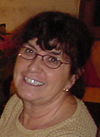
- Learning Development Institute
|
- Lya Visser holds a Ph.D. in Educational Science
and Technology from the University of Twente, The Netherlands.
Lya has a profound interest in teaching and learning and has
done research in the areas of motivation and communication. Her
long-standing experience as a distance learner and facilitator
have contributed considerably to being a successful and caring
distance educator.
- Lya has worked as a faculty member at universities
in Mozambique and in the United States. As an international consultant
she is active in many different countries and often under challenging
circumstances. Lya is on the editorial board of the Quarterly
Review of Distance Education and heads the section for foreign
contributions. In addition, she is the editor of the forthcoming
volume entitled: The history of distance education – International
Perspectives. Lya is also co-editor of a forthcoming book: Trends
and Issues in Distance Education-International Perspectives which
is due to be published in June 2005. Last but not least, she
is the Director of Training with the Learning Development Institute.
|
- Muriel Visser
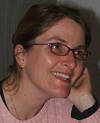
- Learning Development Institute
|
- Muriel Visser has an academic background
in rural sociology (Wageningen University, Netherlands), distance
education (MA - University of London and Educational Extension
College, Cambridge, UK), and mass communication (Ph.D. - Florida
State University). Her professional experience has focused on
the design and management of international development projects,
particularly in Africa and more recently on supporting education
systems in developing an effective response to the threat of
HIV/AIDS. Muriel's current research interests focus on promoting
human learning and change within the wider context of development,
in particular as it relates to living with HIV and AIDS. Recent
research projects have included mapping teachers' perceptions
about HIV/AIDS, analyzing African media portrayal of HIV/AIDS
issues, and understanding factors that influence teachers' willingness
to talk about HIV/AIDS in school and communities. In the context
of her research Muriel is also actively engaged with asking herself
questions regarding research methodological issues (particularly
how we best get to know what we want to know in non-traditional
research settings). Muriel is associated with the Learning Development
Institute as a researcher. For more about these projects see:
http://www.learndev.org/People/MurielVisser/Index.html.
|
- Yusra Laila Visser
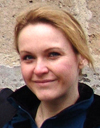
- Learning Development Institute & Florida
Atlantic University
|
- Yusra Visser spent the first 18 years of
her life in southeast Africa, learning much from growing up amidst
the wonders and the difficulties of postcolonial states, witnessing
both the splendor of the diversity of lifestyles and cultures
in those regions and the ravaging effects of war, poverty, and
disease. During this time she learned about the values of a solid
education as well as the importance of political action and consciousness,
about social service, and about the use of systematic inquiry
for interpreting the attributes of the surrounding world. Those
early experiences set the stage for some of her later choices,
such as her specialization in Africa Studies and Political Economy
while doing her undergraduate work at American University in
Washington, DC, and her later focus on instruction for problem
solving during her graduate work at Florida State University.
Yusra is vice-president of the Learning Development Institute,
as well as Assistant Professor of Instructional Technology at
Florida Atlantic University. Her research agenda is housed under
the theme "simple solutions for complex problems",
and seeks to identify low-cost, replicable educational interventions
for human development. More information about her can be found
at http://www.coe.fau.edu/faculty/visser/
and http://www.learndev.org/People/YusraVisser/Index.html.
|
- Wambui Rose Wamuthenya
-
- Institute of Social Studies
|
- I am currently working on my PhD thesis since
May 2002. My academic background (undergraduate and graduate)
is economics.
Research Topic: Employment, Incomes, Female Labor Force Participation
Rates and Poverty in the context of an Economic Crisis in the
Urban Areas of Kenya.
Areas of Intererest: Poverty, Labor Economics, Feminist Economics,
Quantitative and Qualitative Research Methodologies, Analysis
of Household and Labor Force Survey Data, Urban Livelihoods,
Migration, Gender Analysis, Unemployment and Education.
- Before embarking on the Doctorate I worked
in an international environment as a Research Officer with the
International Development Research Centre (IDRC-headquarter in
Ottawa) at the regional office for Eastern and Southern Africa
(ESARO) based in Nairobi.
- I am a member (researcher) of the African
Economic Research Consortium (AERC-based in Africa) network and
a member of the International Association For Feminist Economists
(IAFFE-based in Washington DC).
|
- Cheryl Vince Whitman
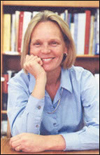
- Education Development Center
|
- Cheryl Vince Whitman is a senior vice president
at Education Development Center, Inc. (EDC), an international
non-profit organization with approximately 1000 staff and over
20 offices worldwide. EDC applies research and educational strategies
to address social challenges in health, education and youth employment.
Ms. Vince Whitman also directs the division of Health and Human
Development Programs (HHD) at EDC, a World Health Organization
Collaborating Center, which promotes healthy, safe behaviors
and environments where people live, learn and work. HHD's research
and program development focus on: mental health promotion and
prevention of disorders, especially suicide and violent behaviors;
HIV/AIDS, alcohol and other drug prevention; nutrition and obesity
and the interrelationships among them. Ms. Vince Whitman has
led the development of HHD's global work in HIV/AIDS, developing
initiatives in prevention, intervention and care of orphans and
vulnerable children, especially in the Caribbean, Southern Africa,
and Southeast Asia. With UNESCO Caribbean, she is presently developing
an advocacy campaign aimed at deepening the education sector
response to HIV/AIDS. Her academic training is in education and
psychology, with core courses in entrepreneurship within a Masters
of Business Administration program.
|
- John R. Whitman
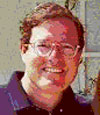
- Ontario Institute for Studies in Education,
University of Toronto
|
- John R. Whitman is a PhD candidate at the
Ontario Institute for Studies in Education at the University
of Toronto. He is exploring the roles and evaluation of philanthropic
foundations as global agents of social change, focusing on foundations
in Canada, the US, and Europe. Mr. Whitman has had careers in
international environmental education, the international software
industry, and survey research, specializing in measuring expectations
and attitudes of service delivery. With Peter Hernon, he co-authored
Delivering Satisfaction and Service Quality: A customer-based
approach for libraries, published by the American Library Association
(2001). He received his master's degree in Administration, Planning,
and Social Policy from the Graduate School of Education at Harvard
University and his bachelor's degree in Philosophy from Boston
University. He is a member of the Association
for Research on Nonprofit Organizations and Voluntary Action
(ARNOVA), the American Evaluation
Association, the Canadian
Evaluation Society and the Human
Development and Capability Association (HDCA). Mr. Whitman's
email address is [email protected]
and his academic web site is http://leo.oise.utoronto.ca/~jwhitman/.
|
- Abraham Zalzman
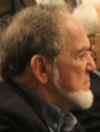
- INESTED, Venezuela
|
|
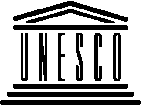
 Introduction
Introduction
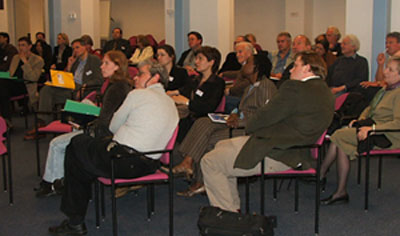
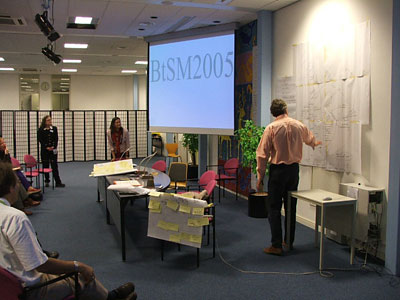 Overview
of organizational details
Overview
of organizational details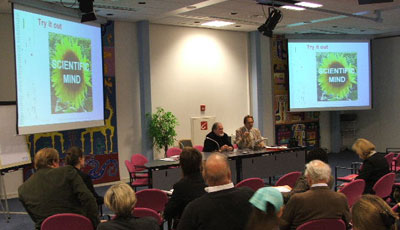 Why
a meeting on Building the Scientific Mind?
Why
a meeting on Building the Scientific Mind?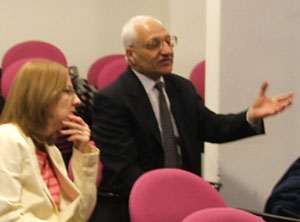 Second,
for the purpose of this Advanced Colloquium, the mind is defined
as the interconnected set of attributes of the whole person that
disposition the beholder to approach his or her world in particular
ways. In this context, mind is seen as an embodied process that
allows humans to use language and speech to engage with the world.
Humans normally entertain a variety of mindsets. The scientific
mind is part of that variety. Examples of other mindsets are
the artistic mind, the entrepreneurial mind, the spiritual mind,
the political mind, the moral mind. People typically adopt a
particular frame of mind and consider problems they encounter
in the light of it. They are also able to switch between different
views of the world and may at one time be inclined to view an
issue in, say, a political perspective and subsequently want
to address it inspired by a scientific mindset. An assumption
behind the Advanced Colloquium on Building the Scientific Mind
is that the scientific mind provides a key perspective that in
essential ways complements the various other mindsets. In other
words, it is a mindset that everyone should have.
Second,
for the purpose of this Advanced Colloquium, the mind is defined
as the interconnected set of attributes of the whole person that
disposition the beholder to approach his or her world in particular
ways. In this context, mind is seen as an embodied process that
allows humans to use language and speech to engage with the world.
Humans normally entertain a variety of mindsets. The scientific
mind is part of that variety. Examples of other mindsets are
the artistic mind, the entrepreneurial mind, the spiritual mind,
the political mind, the moral mind. People typically adopt a
particular frame of mind and consider problems they encounter
in the light of it. They are also able to switch between different
views of the world and may at one time be inclined to view an
issue in, say, a political perspective and subsequently want
to address it inspired by a scientific mindset. An assumption
behind the Advanced Colloquium on Building the Scientific Mind
is that the scientific mind provides a key perspective that in
essential ways complements the various other mindsets. In other
words, it is a mindset that everyone should have.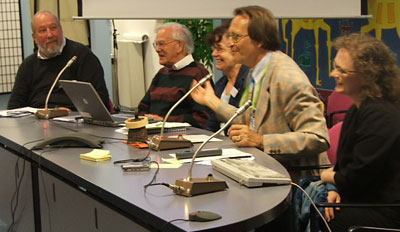 Fourth,
economic and human development in the Third World are crucially
dependent on familiarity of the population of developing countries
with ways of thinking and interacting with problems that pertain
to the scientific mind. Traditional school science education,
based on curricula and assessment procedures that emphasize rote
learning, is frequently an insufficient condition for the proper
development of the scientific mind and may at times be at odds
with it. Refocusing school-based learning towards attaining the
various attributes of the scientific mind will be particularly
relevant for the developing world.
Fourth,
economic and human development in the Third World are crucially
dependent on familiarity of the population of developing countries
with ways of thinking and interacting with problems that pertain
to the scientific mind. Traditional school science education,
based on curricula and assessment procedures that emphasize rote
learning, is frequently an insufficient condition for the proper
development of the scientific mind and may at times be at odds
with it. Refocusing school-based learning towards attaining the
various attributes of the scientific mind will be particularly
relevant for the developing world.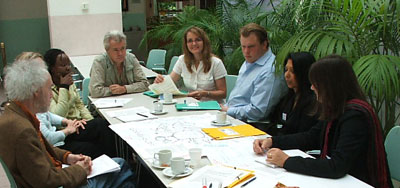 For all of the above reasons, the Advanced
Colloquium on Building the Scientific Mind aimed at impacting
profoundly existing policy, practice and research in areas pertaining
to building the scientific mind. More specifically, it intended
to:
For all of the above reasons, the Advanced
Colloquium on Building the Scientific Mind aimed at impacting
profoundly existing policy, practice and research in areas pertaining
to building the scientific mind. More specifically, it intended
to: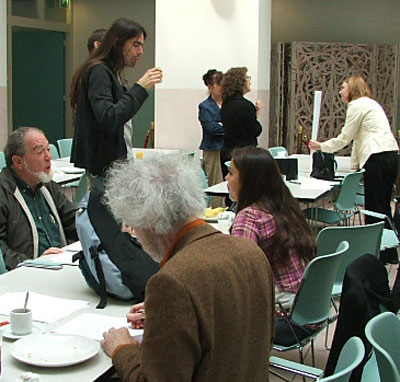 What
was done?
What
was done?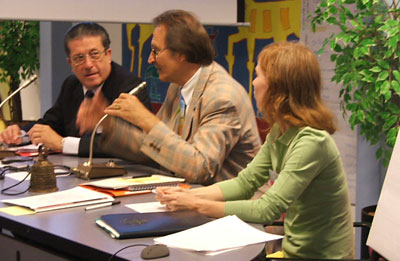 Who
participated?
Who
participated?















































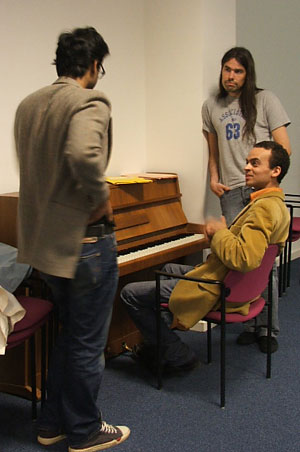 Thanks
to Ron Burnett and the Emily Carr Institute of Art and Design,
a blog for the BtSM community is available at
Thanks
to Ron Burnett and the Emily Carr Institute of Art and Design,
a blog for the BtSM community is available at 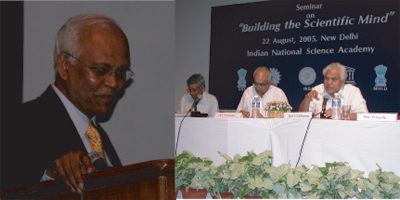 The Final
Report on BtSM2005 and its outcomes lists commitments by
BtSM community members to follow up on the results of the dialogue
in The Hague. Among those commitments is the initiative to hold
country-based and regional meetings. In line with this determination,
a one-day seminar on Building the Scientific Mind took place
on 22 August 2005 in New Delhi, India. It was the result of collaboration
between UNESCO's New Delhi
office and the Indian
National Science Academy (INSA). A concept
paper for this seminar was prepared at the request of UNESCO
by LDI. The agenda
was set locally and a report
concerning the seminar was produced by INSA. Another follow-up
meeting to BtSM2005 was planned to take place in Russia but so
far failed to materialize due to lack of funding.
The Final
Report on BtSM2005 and its outcomes lists commitments by
BtSM community members to follow up on the results of the dialogue
in The Hague. Among those commitments is the initiative to hold
country-based and regional meetings. In line with this determination,
a one-day seminar on Building the Scientific Mind took place
on 22 August 2005 in New Delhi, India. It was the result of collaboration
between UNESCO's New Delhi
office and the Indian
National Science Academy (INSA). A concept
paper for this seminar was prepared at the request of UNESCO
by LDI. The agenda
was set locally and a report
concerning the seminar was produced by INSA. Another follow-up
meeting to BtSM2005 was planned to take place in Russia but so
far failed to materialize due to lack of funding.